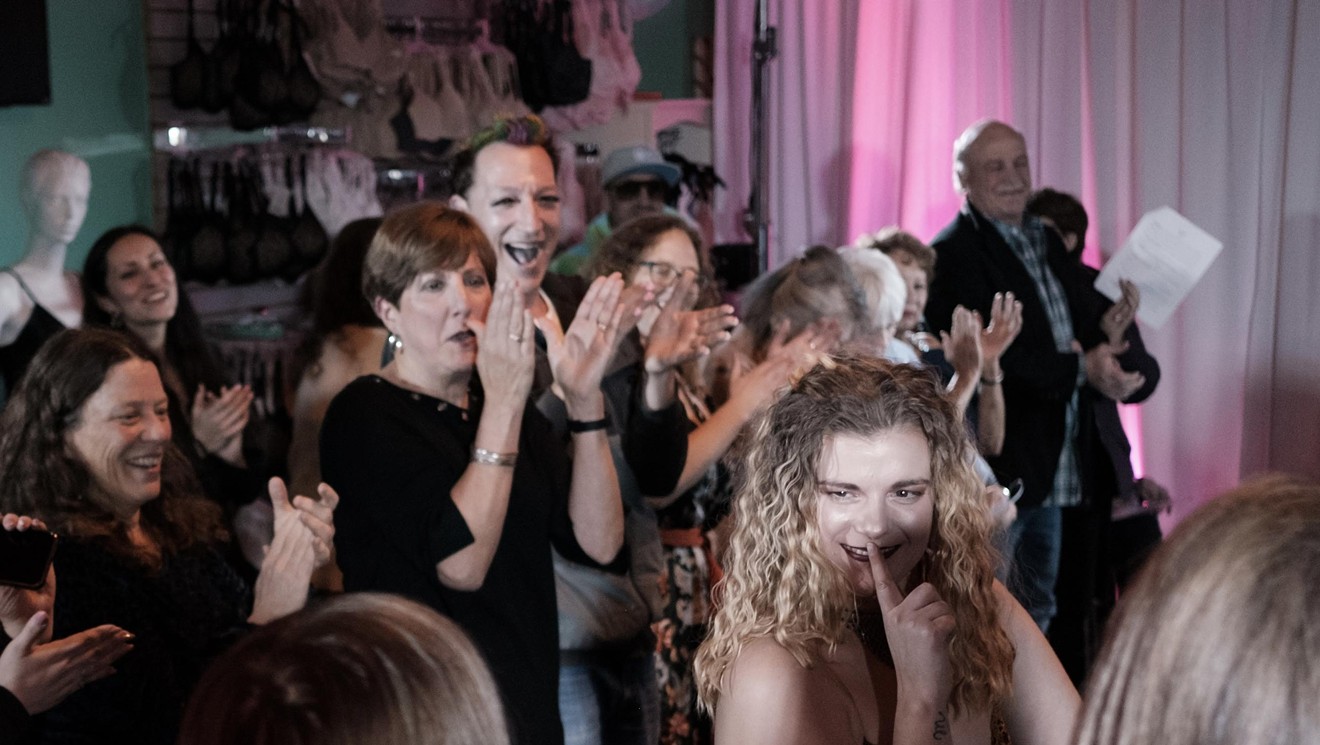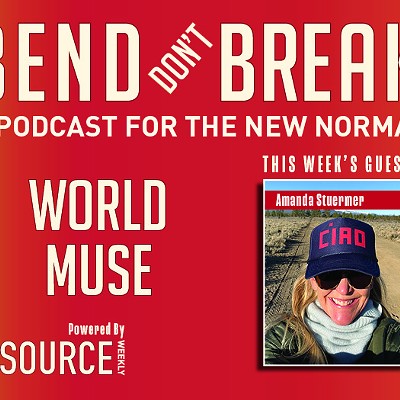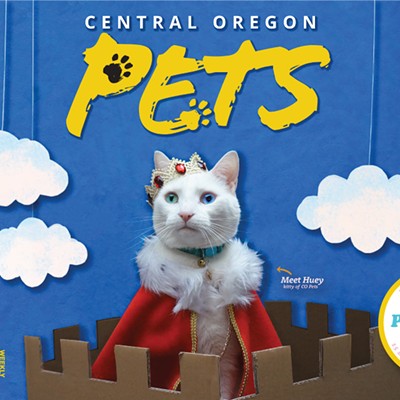Oregonians have their own way of looking at things. There is a spirit of fun and adventure that runs through pretty much everything we do here. And when Oregon was struggling to rebound from a severe recession in the 1980s, Oregonians looked for a way to respond that did more than just make money.
The people of Oregon knew it would take some cash to jump-start the economy, but they weren't about to settle for business as usual. They also wanted to offer Oregonians a chance to have some fun! So, on November 6, 1984, Oregonians voted to create a state lottery by a margin of two to one...
- It Does Good Things, a webpage created by the Oregon State Lottery
I'm a hardcore slot machine junkie. There are no other words to describe my compulsion for my favorite drug. I've been clean for nearly a year. I wouldn't predict a longer run of sobriety for me except for what I can manage today. That's the nature of true addiction.
For about 10 years of my 14-year gambling stretch, I gambled in binges - every one to three weeks. Toward the end I became a furious and resentful woman. I hated my beloved town that had become a playground for the rich and fatuous; the once-wild Southwest that was pocked with gated developments and huge fifth wheel RVs - and my friends, for seeming to no longer want to spend much time with me. But more than anything, I hated my species for gobbling up the planet that was my purest medicine. And every one to three weeks, I burned gasoline driving an hour or more to casinos in which I could forget the fact that I was in a casino whose existence was gobbling the planet even faster. Only when I was hunkered down at my favorite slot machine did I feel relaxed and normal. That's the nature of this addiction.
Over those 10 years, I lost about $25,000. The money didn't mean much to me. I've been a dedicated working-poor writer and environmental/social justice activist for years. I didn't just preach limitation; I lived it. That meant consuming as little as possible. Money came in sporadically, but life always stepped in and carried me a little longer: a speaking gig, an article accepted, friends and family bailing me out and, down the road, me bailing them out. There was always just enough money, even a few bucks to put in the machines.
I wouldn't have quit if the delicate neurochemistry of my brain hadn't stopped me. I was driving home from a casino run in December 2007 when I realized I couldn't see out of one eye. A flickering rainbow began to spread out from the blind spot. I'd had ocular migraines before. They kicked in after I ate chocolate. I hated them so much I stopped eating chocolate. This time there'd been no chocolate.
I drove through the aura to home. I had a suspicion the migraine was a consequence of hours in a smoky casino staring at a slot machine screen. I decided to not gamble for a while. If I could give up chocolate, I could give up slots.
The migraines continued. I tried what 12-step programs call a geographic and moved to 29 Palms, California. The migraines continued. Finally, I found a group of gambling addicts committed to quitting and began to go to their meetings. My withdrawal was ferocious. An addicted brain not on drugs is no fun. I stayed clean until April 2009. I was on a road trip and angry with a friend when I walked into a Toppenish casino only to discover five hundred bucks later that slot machines were no longer my opiate, my hypnotic, my speed or even my crazy elusive lover. That pissed me off even more. But, I somehow turned away from the ATM and left the casino.
I moved from the Mojave to Bend in 2009. I found a new support group for gambling addicts and felt more and more secure in my abstinence. Though Reno was a day's drive south and the Warm Springs casino 45 minutes north, my loyalty to my friends in the meeting clicked in every time I thought, "Fuck it, I can just go play twenty bucks." Plus, I'd contracted to write a memoir/self-help guide on women and compulsive gambling - She Bets Her Life: A true story of gambling addiction - and I felt loyalty to my future readers.
As I did months of research for the book, I found myself horrified by what I was learning. There were days it didn't matter that I'd just discovered that gambling addicts have the highest rate of suicide for any addiction, or that treatment experts describe slot machines as the crack cocaine of gambling, or that both gambling and cocaine light up the same part of the brain. I'd find myself writing a memory of a gambling run or seeing pictures of casinos in my research and feel the old adrenaline jolt in my gut. "Fuck it - just go. Fuck it - you've worked hard. Fuck it - you could get a big hit and not have to be scared about next month's rent."
I didn't give in, not even when I walked into a local supermarket and saw a flashing keno board, or when I learned that the Oregon State Lottery has machines in dozens of venues, some within walking distance of my house. I kept my hands in my pockets and my money in my backpack, but I felt afraid. I'd learned that proximity to a casino increases the probability that a recovering gambling addict will go back out. I knew too well, from research and my own experience, that the recidivism rate for gambling addicts is the highest of any addiction. There are a few reasons for that, the most powerful being what the treatment pros have labeled "euphoric recall" - flashbacks in which the addict can only remember the fun, the wins and the feeling of being, for once in his or her life, whole. Everyone in our support group talked about having moments, even hours when the bad times seemed no more than shadows.
"It's all brain chemistry," one of the guys in the group often told us. "Gambling, especially slot machines, triggers surges of feel-good chemicals. Then, just like a desert wash after a flash-flood, when the rush has trickled away, you're left with erosion and whatever junk has washed down."
I stayed clean. My friends stayed clean. My flashbacks began to dwindle. At times, I could imagine I had beaten the odds. And then, in late 2009, I learned that the Oregon State Lottery had been given permission to use images of slot machines in their ads. I was horrified. Visual cues are one of the most powerful triggers for any gambling addict. I clicked on an Internet newspaper story about the new ruling. A dazzling picture of one of my favorite slot machines leaped up on the screen - all those gorgeous neon pinks and purples and greens. Adrenaline struck like lightning. I heard myself say, "Fuck it, just go!"
I called the brain chemistry guy from our group and told him what was happening. "Yeah," he said, "just looking at the pictures jacks up the chemicals. Get the hell away from the computer." I logged off and went for a long walk. By the time I returned home, the jones had faded to an itch, an itch that is almost always with me. I called my friend back and told him I was as OK as an addict could be. I thanked him. "And I thank you," he said. "That's how it works."
I write these last sentences and I feel the jolt. "Fuck it - you worked hard writing this piece. You deserve a treat. Fuck it - just go." I read back over my words and feel a little stronger. For this moment, heading to the casino is not an option. For this moment.
Mary Sojourner is an author, commentator and activist who makes her home in Bend. Her work has been featured on NPR as well as in multiple newspapers and magazines. Her new book: "She Bets Her Life: A true story of gambling addiction" will be published by Seal Press in early May. In the meantime, you can usually find her at Dudley's bookstore in downtown Bend where she teaches a small writing class. Her column wRite appears regularly in The Source.
By The Numbers
* 5 - the number of states besides Oregon that sponsor video gambling.
* 10,800 - the number of state-owned video slot machines in Oregon.
* 6,000 - the number of tribal-owned video slots
* $1.27 billion - Oregon's gambling receipts in 2004.
* 3,184 - the number of gambling addicts in Deschutes County
* 59 - the percentage of gambling addicts who are female in Deschutes County
* $32,000 - average debt for Oregon gamblers in treatment
Source: Oregon Department of Human Services
With A Little Help
From My Friends
It's seven o'clock on any Tuesday night in Bend, or six o'clock in Redmond. A handful, sometimes a dozen or so people gather in a room where they can meet their brothers and sisters in recovery from compulsive gambling.
The room could be anywhere. It could be in a church basement, in the back of a restaurant, in a community center or bookstore. All the rooms in which Gamblers Anonymous (GA) meets are different; all the rooms are the same because, as GA member A.K.A. says: "every GA room is filled with love. "
The dozen or so people in the Bend and Redmond GA rooms are all different: women, men, young, old, poker players, online gamblers and slot machine addicts; all ethnicities and incomes - and their stories are all the same. Some of them have not gambled in 24 years - some in 24 hours. It doesn't matter. All that matters is that they each want to stop. That is the only requirement for sitting in a GA meeting with the people who really understand what it's like to promise to yourself over and over again that you'll never make a bet, only to find yourself 12, six, or two hours later grabbing money from an ATM and racing toward a betting parlor or casino. And hours, maybe days later, finding yourself in a dead-end conversation with the only person who can get you to stop - yourself.
Gamblers Anonymous is a twelve-step program of attraction, not promotion. Some of the people who gather in the little meeting room every Tuesday evening speak about why they keep coming back week after week. The names have been changed to preserve anonymity - not so much for the individual, but, as A.K.A says, "for the protection of the program."
"Will Not" has a few years of not gambling under his belt. He smiles softly when I ask him, "Why do you keep coming back to meetings?"
"I come to meetings because I can't do this alone," she says. "Caught off-guard and under the wrong circumstances, I'll gamble again and I don't want to go back down that road."
"Sunshine" is back after a few weeks of gambling.
"I don't quite know totally inside that the program works," she says. "But, I keep coming back because I want it to work like it works for the other people in our group."
Otter shakes his head. He's back after a few months of being out of control with gambling.
"I'm back because the only time I could keep clean was when I was coming to these meetings," he says. - Mary Sojourner























